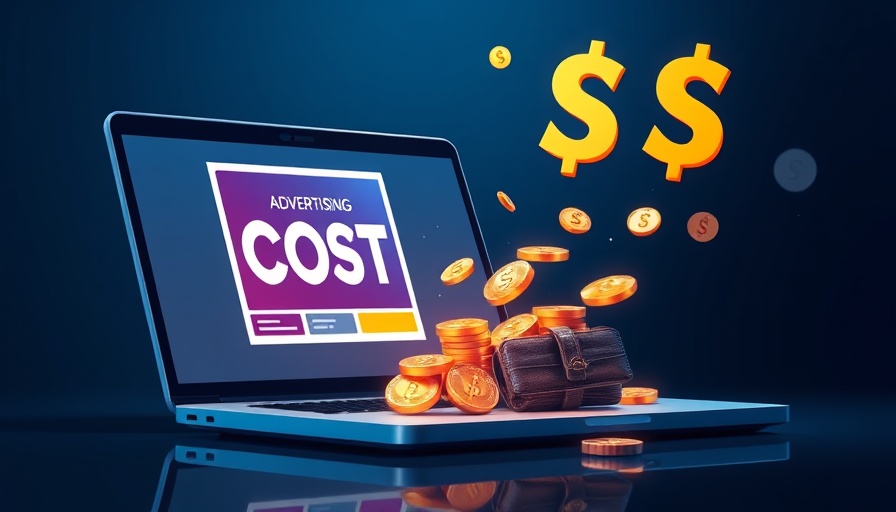
Understanding the Average Cost per Click in Digital Marketing
As online advertising flourishes, understanding the average cost per click (CPC) becomes crucial for professionals, business owners, and marketers alike. In the competitive digital marketing landscape, knowing what to pay for clicks can directly influence your advertising success and ROI. With various platforms and industries having different CPC rates, it's essential to have a clear insight into what influences these costs.
What Affects Cost per Click?
Several factors can impact your CPC:
- Industry Competition: Different industries experience varying levels of competition for clicks, leading to fluctuating prices.
- Quality Score: A high-quality score in platforms like Google Ads can lower your CPC, emphasizing the importance of well-designed ads and landing pages.
- Targeting: The type of audience you target, including demographics and geographical location, can significantly affect costs.
PPC Advertising Insights: Navigating Costs and Goals
Simply paying for clicks is not enough. Focusing on achieving the right goals is crucial. Businesses must assess if their current CPC rate aligns with their conversion goals. Analyzing data using analytics and reporting tools can provide insights into whether your selected keywords are cost-effective or if adjustments are necessary.
Local SEO vs. PPC: A Comparison of Advertising Strategies
While PPC can yield immediate results, incorporating local SEO practices can complement your marketing strategy in the long run. Businesses can leverage local citation building and Google My Business optimization to enhance their presence organically, potentially reducing dependency on paid clicks over time. This integrated approach not only helps achieve short-term gains but also builds sustainable brand awareness in the community.
Future Predictions: Costs Look to Climb
As digital marketing continues to evolve, it’s predicted that CPC rates might rise due to increased competition and the saturation of digital platforms. Marketers should be proactive in refining strategies that focus on user experience optimization to maintain competitive advantages despite rising costs.
Common Misconceptions About CPC
Many believe that a lower CPC always means better ad performance. However, it’s crucial to look beyond the numbers. CPC must be analyzed in context with conversion rates. Sometimes a higher CPC can yield higher overall profits if it leads to greater sales or client engagement. Thus, understanding the complete picture is essential when managing PPC budgets.
Best Practices for Managing PPC Costs
To enhance your PPC management, consider these best practices:
- Keyword Research Techniques: Use comprehensive tools to identify the most cost-effective keywords for your industry.
- A/B Testing Strategies: Continuously conduct tests on your ads to determine the best-performing variations.
- Monitor Your ROI: Regularly assess the return on investment from your PPC campaigns to ensure they're meeting your business goals.
Conclusion: Taking Action with CPC Insights
Understanding the average cost per click is just the beginning. Professionals, marketers, and business owners need to embrace data-driven decision-making and continuously refine their strategies based on performance metrics. The journey into PPC advertising is ongoing, and the best results come from adapting to the ever-changing digital landscape.
For those looking to deepen their digital strategy, consider investing time in understanding user experience and analytics. This can lead to better-informed decisions that enhance your advertising effectiveness.
 Add Row
Add Row  Add
Add 




Write A Comment